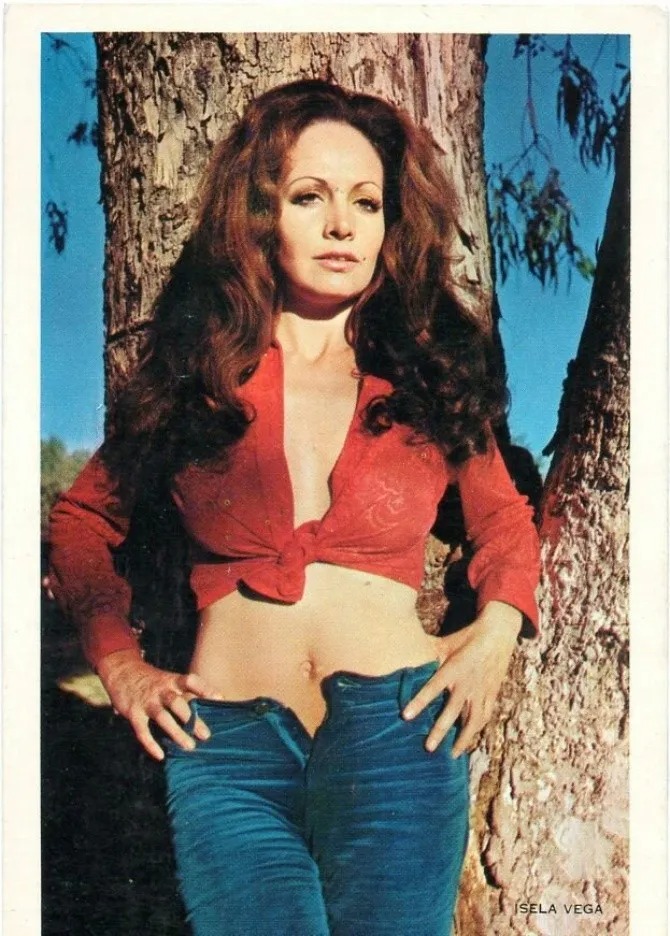Isela Vega: Remembering The Mexican Icon - Latest Updates
Can a single life truly encapsulate the spirit of an era, the resilience of a nation, and the audacity of artistic expression? The passing of Isela Vega, the Mexican actress, on March 9, 2021, at the age of 81, marked not just the end of a life, but the fading of a bright star in the cinematic firmament, a star that defied conventions and redefined the very essence of Mexican cinema.
On March 10th, 2021, the Mexican Institute of Cinematography (IMCINE) officially confirmed the news, plunging the Mexican artistic world into mourning. A woman who dared to challenge norms, Vega's death was a loss felt deeply by her peers and the public alike. Her final battle was against cancer, a struggle she fought with the same tenacity she brought to her roles.
A journey through her life and work reveals a woman who was more than just an actress; she was a screenwriter, producer, and director, a true creative force. She wasn't just a part of the Mexican film industry; she was the Mexican film industry, a force of nature. Throughout her career, she worked across genres, and styles. She was a woman who broke barriers and redefined what it meant to be a woman in Mexican cinema. She was, in the words of IMCINE, a "transgressive woman" of Mexican cinema. Her departure leaves an irreplaceable void, but her legacy endures, etched forever in the annals of film history. The narrative of her life is a compelling one, a story of resilience, artistry, and an unwavering commitment to her craft, a story that continues to captivate.
| Category | Details |
|---|---|
| Full Name | Isela Vega Durazo |
| Date of Birth | November 5, 1939 |
| Place of Birth | Hermosillo, Sonora, Mexico |
| Date of Death | March 9, 2021 |
| Cause of Death | Cancer |
| Occupation(s) | Actress, Screenwriter, Producer, Director |
| Notable Works | "Bring Me the Head of Alfredo Garcia," "La Viuda Negra," "El Hombre de los Hongos" |
| Awards/Recognition | Ariel de Oro |
| Other Notable roles | Princess of the Carnaval in Hermosillo (1957), Model, Singer |
| Reference | IMDB |
Born in Hermosillo, Sonora, in 1939, Isela Vega's journey into the world of entertainment began with a touch of glamour. In 1957, she was crowned the princess of the Hermosillo Carnival, a role that opened doors to modeling. Her natural beauty and charisma led her to pursue a career in modeling, which in turn paved the way for her entry into acting. Vegas early exposure to the public eye gave her the confidence to pursue her ambitions with a remarkable resolve. This initial foray into the public sphere was the first step in her journey to become one of Mexico's most recognizable faces.
In 1960, Isela Vega embarked on her acting career. Her early roles demonstrated a wide range of abilities, and it wasn't long before she established herself as a star. Beyond just acting, she was a pioneer. Throughout the 1960s and beyond, she embraced a range of roles, demonstrating her versatility and commitment to her craft. The late 1960s also saw her release an album, demonstrating her musical talent. Her musical endeavors gave her creative outlets beyond acting and showcased another aspect of her artistic personality. This was the beginning of a career that would span decades and leave an enduring impact.
Vega was a woman of many talents. The roles she chose, the scripts she wrote, and the projects she directed all reflected her bold spirit and commitment to artistic independence. She defied censorship and machismo, a courageous stance that often put her at odds with societal expectations. Her willingness to challenge the status quo made her a beacon for future generations of actresses who sought to break free from limiting stereotypes.
One of the most defining roles of her career was in Sam Peckinpah's "Bring Me the Head of Alfredo Garcia" (1974), in which she portrayed Elita. This role propelled her to international recognition and cemented her reputation as a fearless performer. Her other notable films included "Lovers of the Lord of the Night" and "The Black Widow". The roles she took on were often daring, and she was never afraid to play complex, flawed characters. It was through her roles that she challenged societal norms and gave voice to characters who were often marginalized in Mexican cinema.
The influence of Isela Vega extended beyond her on-screen performances. She also worked behind the camera as a screenwriter, producer, and director. Her work in these roles allowed her to shape the narrative of Mexican cinema and to give a platform to stories that might otherwise have gone untold. Her directorial efforts, in particular, were a testament to her vision and her determination to create meaningful art. She was a woman who took control of her destiny. She was a true Renaissance woman of the film industry.
The impact of Isela Vega on the Mexican film industry cannot be overstated. She was a trailblazer who helped pave the way for future generations of actresses and filmmakers. She defied expectations and proved that women could be successful in all aspects of the film industry. She fought against the limitations placed on women in her time and through her determination, inspired many. Her influence is still felt today. She was not only an actress; she was a symbol of resistance and the embodiment of artistic freedom.
The news of her passing brought an outpouring of tributes and messages from actors, actresses, producers, and directors across Mexico. Many took to social media to honor her legacy, emphasizing her talent, personality, and humor. Her passing was not just a loss for the film industry, but for the entire nation. She was an icon, and her death was mourned with the same intensity that she brought to her roles. Her memory will be a source of inspiration. Her spirit will continue to live on in her work. Her legacy is secure and continues to inspire new talents.
Her niece, Brenda Vega, announced the sad news on social media, stating, "Today a woman dies and a legend is born, Isela Vega, your heart sails and your soul now rests." The words echoed the sentiments of a nation, celebrating her life and the immense contributions she made to art. In her passing, the legacy of Isela Vega lives on, reminding us of the power of art and the importance of those who dare to challenge the status quo. Her life's journey is a testament to the enduring power of human creativity.
The film "Bring Me the Head of Alfredo Garcia" is just one of the films that has kept her remembered. She was also well known for her acting in soap operas and TV shows in recent years. She consistently brought her talents, her wit, and her wisdom to every project. She consistently broke through boundaries, challenged conventions, and inspired audiences. Isela Vega was not just a name; she was a cultural phenomenon, a symbol of freedom, and a legend that time cannot erase. Her spirit lives on in every performance, every screenplay, and in the hearts of all those who were touched by her art.
The echoes of her voice, her laughter, and her presence will be felt for generations to come. Her impact extends far beyond the silver screen. She leaves behind a legacy of courage, artistic integrity, and a testament to the power of a life lived fully. Her memory will be cherished, and her contributions will continue to inspire all those who aspire to create and to live a life that is true to themselves. Isela Vega, the woman who defied conventions, will continue to inspire. She will continue to live on, as a legend forever etched in the history of Mexican cinema. Her memory will be celebrated. Her spirit will forever endure.


